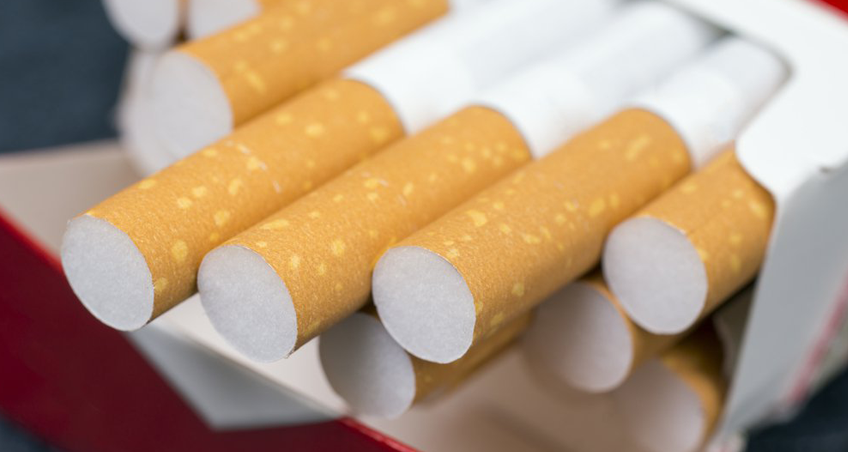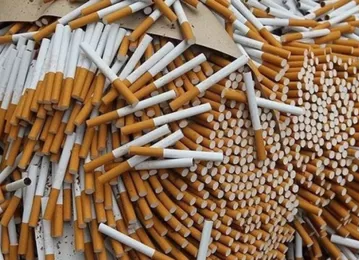
Moldova in danger of repeating Romania's mistakes
Japan Tobacco International Company (JTI Moldova), which contributes about 40% of the revenue to the state budget from excise tax on tobacco products, points out that excessive taxation can lead to a sharp increase in smuggling and losses to the state budget. "We point out that increasing excise duty on tobacco products in 2023 by 25%, compared to 15% as provided for in the Tax Code, will lead to large and sudden price increases, sending adult smokers to the black market".
The market is already further affected as the war in Ukraine has led to a shift in import sources from former CIS countries to factories in European countries. Thus, while before the war, products were imported from Ukraine or Russia duty-free, from spring 2022 they are mainly imported from Romania and other European countries with customs duties of 3 Euro per thousand pieces (or +60 lei), which has already increased the tax burden by 6% in 2022. On top of all this, supply chain costs (transport, raw materials) and inflation are rising, which all economic operators face. According to Ipsos Illegal Trade Research, although at a low level, illegal trade in Moldova almost doubled from 2.3% in the first wave in 2021 to 4.1% in the second. Smuggled and illegal goods are readily available from Ukraine and Transnistria, which leads us to say that the level of illegal trade in 2022 is increasing.
The increase in smuggling means significant losses for companies operating legally, given that due to legislative instability and lack of fiscal predictability, one of the largest players has recently withdrawn from the Moldovan market. Thus, if the black market grows, the state budget is damaged by hundreds of millions of lei.
“Those who do not remember the past are condemned to repeat it”, said the great Romanian politician and historian Nicolae Iorga. At least in the field of taxation, more specifically the taxation of tobacco products, Romania has learned its lesson. The 50% increase in tobacco excise duty in 2009 in less than nine months brought the illegal trade in cigarettes to over 36%. In 2010, smuggling became a priority on the National Defence Council's agenda as a threat to national security. Losses to the state budget amounted to more than 1 billion Euro and at the time JTI was forced to dismiss more than 100 employees. It took many years and efforts for the market to recover. After that shock, excise duties were gradually increased according to timetables included in the Tax Code, discussed with the industry and announced in advance. This has allowed the state to rely on growing revenues year after year, with the tobacco sector becoming a solid contributor to the budget. In 2021, tobacco companies paid around 4 billion Euro to the Romanian budget, an increase of 13% compared to 2020. It is, therefore, very important that the Republic of Moldova learns from Romania's experience and gradually increases excise duties after consultations and discussions with the industry. Large increases in excise duties only look good on paper, the losses are in reality much higher than the gains”, said Gilda Lazar, Head of Corporate Affairs & Communications JTI Romania, Moldova and Bulgaria.
Not only Romania's experience leads to the same conclusion: sudden taxation has the direct effect of increasing smuggling. Other countries that joined the EU in 2004 and 2007 and decided to harmonise excise duties on cigarettes at the European minimum level at an accelerated pace in 2009, have seen significant increases in the black market, which in 2010 reached 54% in Latvia or 40% in Bulgaria. All countries that have gone through this experience have subsequently applied a balanced tax policy. Now, the case of France is known, which according to a KPMG study, after unsustainably increasing tobacco taxes, has reached a smuggling level of almost 30%.
Another relevant example comes from Ukraine, which has increased excise duty at an accelerated pace in recent years in order to accumulate budget revenues. Unfortunately, the opposite has happened. This has led to a massive smuggling and illegal trade estimated at 21.9% of the market in August 2022 (according to Kantar Study). Ukraine's missed budget revenue amounts to more than 20 billion UAH (or about 645 million Euro) in 2022. It is obvious why Ukraine has decided to keep the excise tax increase unchanged in 2023, according to the approved fiscal calendar, with rates very close to the rates already included in the current tax calendar of the Republic of Moldova: Minimum excise duty: 2097 UAH / 1000 pieces or 1095 Moldovan lei.
Currently, the Republic of Moldova has a balanced schedule of gradual increase of excise duties for all categories of tobacco products approved and included in the Tax Code for 2021-2023 (on average the minimum excise duty increases by ~7 Euro in 2021-2023). This has ensured solid budget revenues for the Government, with annual increases of 11% on average.
Since 2019, the excise tax on cigarettes has increased by 57%, and the price share of a pack of cigarettes in daily disposable income is 30%. As a result, in the event of additional taxation, all the conditions are in place for the black market to grow.
Excise duties on tobacco products account for 33% of the tax revenue from excise duties. In 2022, about 74% of the average price of a package sold legally represents taxes (excise duties, VAT + additional customs duties only for importers). The industry’s contribution to the state budget will represent ~7% of total revenues in 2022. The sudden increase in taxes could endanger these revenues on which Moldova relies.






